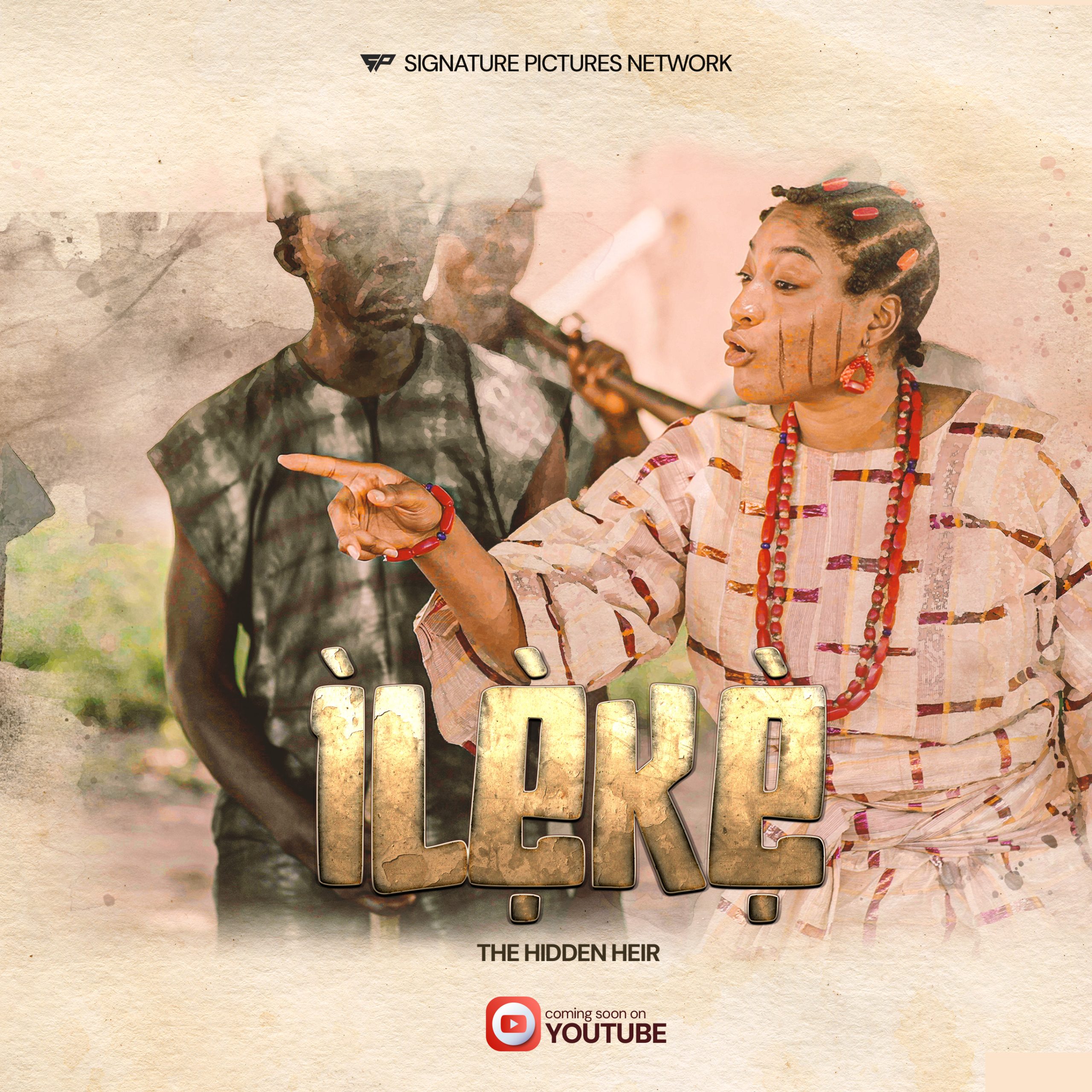The world of television and film has long drawn inspiration from the pages of books. From adaptations of beloved novels to series loosely inspired by folklore and mythology, the interplay between literature and screen storytelling is timeless. One of the latest hits in the drama genre is Ileke, a cultural sensation that has captured the hearts of audiences with its compelling narrative and vivid portrayal of tradition and mysticism.
A question often asked by fans is whether Ileke is based on a book or if it is an original creation. This blog post delves into the origins of Ileke, examining whether its story has roots in literature or folklore, the creative process behind the series, and how it bridges the gap between tradition and modern storytelling.
The Mystery Behind Ileke’s Origins
The popularity of Ileke has sparked widespread curiosity about its inspiration. With its intricate plotlines, well-developed characters, and rich cultural backdrop, many viewers assume it must have been adapted from a book or a literary work. However, the reality of Ileke’s origins is more nuanced.
Is Ileke Based on a Book?
While Ileke is not a direct adaptation of a single book, its story is deeply inspired by traditional oral literature, cultural myths, and elements of African folklore. The show’s creators have crafted an original screenplay, blending these influences into a narrative that feels both timeless and innovative.
The Role of Oral Tradition
In many African cultures, oral storytelling serves as a cornerstone of communal life, preserving history, morality, and spirituality through generations. Stories about sacred objects, mystical powers, and the interplay of fate and free will are common themes.
The titular ileke beads, central to the story, draw upon this tradition. Beads have long held symbolic and spiritual significance, often representing power, identity, and protection. In Ileke, they serve as a metaphor for destiny and the weight of ancestral blessings, adding layers of depth to the series.
Original Storytelling, Rooted in Heritage
Rather than adapting an existing book, the creators of Ileke have taken inspiration from this rich oral heritage, weaving a tale that feels familiar yet unique. This approach allows the series to maintain authenticity while appealing to modern audiences who crave fresh, relatable narratives.
How Literature and Folklore Shape Ileke
Although Ileke is not directly based on a book, its structure and themes echo the hallmarks of literary storytelling. Let’s explore how literature and folklore have influenced its narrative.
1. Universal Themes
The series delves into universal themes such as love, sacrifice, destiny, and the conflict between tradition and change. These themes are often explored in literature, making Ileke resonate with viewers on a deeply emotional level.
2. Archetypal Characters
Ileke features archetypal characters familiar to readers of literature and fans of folklore:
- The Hero on a Journey: A character exiled from their home embarks on a journey of redemption and self-discovery.
- Star-Crossed Lovers: A young couple faces seemingly insurmountable obstacles in their quest for love.
- The Wise Ruler: A king grapples with the responsibilities of power and the consequences of his decisions.
- The Mystical Guardian: Sacred objects like the ileke beads serve as both protectors and burdens, guiding the characters’ fates.
These archetypes lend Ileke a timeless quality, making it feel like a story that could have been passed down through generations.
3. Narrative Techniques
The storytelling techniques employed in Ileke—including flashbacks, moral dilemmas, and parallel storylines—are reminiscent of those found in literary works. These elements create a layered, immersive experience for viewers.
Comparing Ileke to Book-to-Screen Adaptations
While Ileke is an original creation, it shares similarities with successful book-to-screen adaptations in how it builds a rich narrative world and engages its audience.
World-Building
Like a well-written novel, Ileke takes viewers deep into its world, vividly portraying traditional village life, cultural rituals, and mystical elements. This attention to detail mirrors the immersive quality of literary storytelling.
Character Development
In both books and series like Ileke, character development is key to keeping audiences invested. Viewers watch as characters grow, face challenges, and grapple with their inner conflicts, creating a sense of intimacy and relatability.
Thematic Depth
The exploration of profound themes—such as the tension between individual desires and communal responsibilities—aligns Ileke with great literary works.
Why Fans Might Think Ileke Is Based on a Book
Several factors contribute to the misconception that Ileke might be adapted from a book:
- Sophisticated Storytelling
The complexity of Ileke’s narrative rivals that of many novels, leading viewers to assume it must have literary roots. - Cultural and Mythological Depth
The show’s deep connection to cultural heritage gives it the weight and gravitas of a story rooted in history or mythology. - Rich Symbolism
The sacred beads and their mystical significance add a layer of allegory often found in literature, enhancing the series’ appeal to thoughtful audiences.
The Power of Original Storytelling
Even though Ileke isn’t based on a book, its success highlights the power of original storytelling. By drawing inspiration from cultural traditions and infusing them with modern sensibilities, the creators have crafted a narrative that feels both fresh and timeless.
This approach also underscores the importance of preserving and sharing oral traditions in an increasingly digital world. Through Ileke, these stories gain new life, reaching audiences who might otherwise never encounter them.
How Ileke Bridges the Gap Between Tradition and Modernity
One of Ileke’s greatest achievements is its ability to honor tradition while appealing to contemporary viewers. The series does this by:
- Highlighting Universal Themes: While deeply rooted in culture, Ileke addresses issues—like love, power, and identity—that resonate across cultures.
- Using Modern Media: By streaming exclusively on platforms like YouTube, Ileke brings traditional storytelling to a global, tech-savvy audience.
- Balancing Authenticity with Innovation: The creators have stayed true to cultural elements while incorporating dramatic techniques that keep viewers hooked.
What Fans Can Learn From Ileke
The success of Ileke offers valuable lessons for fans and creators alike:
1. The Importance of Representation
Stories like Ileke demonstrate the richness of underrepresented cultures, highlighting the need for diverse voices in entertainment.
2. The Value of Tradition
By drawing on folklore and oral storytelling, Ileke preserves cultural heritage in a way that feels relevant and accessible.
3. The Universality of Storytelling
Although rooted in a specific culture, Ileke’s themes and characters connect with audiences worldwide, proving that great stories transcend boundaries.
Conclusion: The Legacy of Ileke
So, is Ileke based on a book? The answer is no—but that doesn’t diminish its impact or significance. By blending cultural traditions with original storytelling, Ileke has carved out its place as a modern classic, offering viewers a window into a world that is at once familiar and extraordinary.
For fans of literature and folklore, Ileke serves as a reminder of the timeless power of stories to inspire, educate, and connect us all. Whether you’re a longtime fan or a newcomer to the series, Ileke invites you to immerse yourself in its world, where every bead holds a secret, every character has a story, and every episode leaves you wanting more.
4o
O

